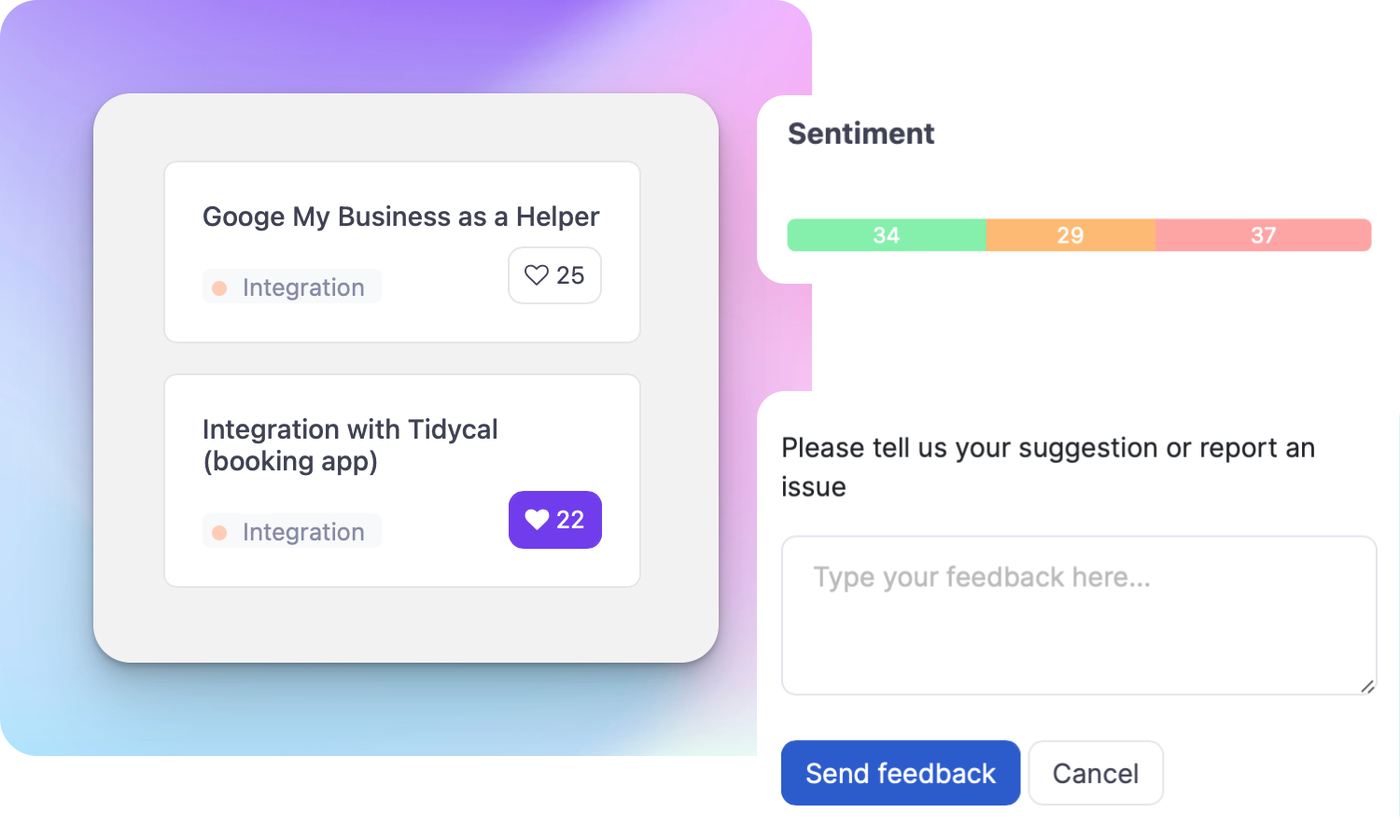What is Product Differentiation?

Ruben Buijs
Product differentiation is a strategy used by Saas product managers to distinguish their product from competitors in the market. It involves highlighting unique features and attributes that set the product apart and make it more appealing to customers. By focusing on product differentiation, businesses can create a competitive advantage and attract a larger customer base.
Examples
- User Interface: A Saas product with an intuitive and user-friendly interface can differentiate itself from competitors with clunky and complex interfaces.
- Customization Options: Offering extensive customization options allows customers to tailor the product to their specific needs, setting it apart from competitors with limited customization capabilities.
- Integration Capabilities: A Saas product that seamlessly integrates with popular third-party tools and platforms provides added value to customers and stands out from competitors with limited integration options.
Importance
Product differentiation is crucial for Saas product managers as it helps their product stand out in a crowded market. Here are a few reasons why product differentiation is important:
- Competitive Advantage: By highlighting unique features, product managers can create a competitive edge, making it difficult for competitors to replicate or imitate their product.
- Increased Market Share: A differentiated product attracts a larger customer base, leading to increased market share and potential for growth.
- Customer Loyalty: When a product offers something unique, customers are more likely to develop loyalty towards the brand, resulting in repeat business and positive word-of-mouth.
- Pricing Flexibility: Products with strong differentiation often have more pricing flexibility compared to commoditized products, allowing businesses to charge premium prices.
How to Use Product Differentiation
To effectively use product differentiation, Saas product managers should consider the following steps:
- Identify Unique Features: Analyze the product's strengths and identify features that set it apart from competitors. These features could be technical capabilities, user experience enhancements, or integration possibilities.
- Understand Customer Needs: Gain insights into the target market and understand their pain points and requirements. Tailor the differentiation strategy to address these needs effectively.
- Communicate the Differentiation: Develop clear and compelling messaging that highlights the unique aspects of the product. Use marketing channels such as website content, social media, and email campaigns to communicate the differentiation to potential customers.
Useful Tips
Here are some useful tips to keep in mind when implementing product differentiation:
- Focus on Customer Value: Ensure that the differentiation strategy adds value to the customer and aligns with their needs and preferences.
- Monitor Competitors: Stay updated on competitor offerings and adjust the product differentiation strategy accordingly to maintain a competitive edge.
- Continuously Innovate: Product differentiation is not a one-time effort. Regularly assess the market, gather customer feedback, and make improvements to stay ahead of the competition.
Related Terms
- Market Differentiation
- Competitive Advantage
- Unique Selling Proposition
- Brand Positioning
- Product Positioning
- Value Proposition
- Customer Segmentation
